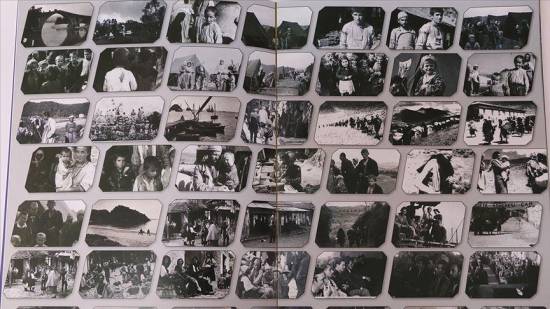
By: Ahmet Gencturk
What was expected happened and US President Joe Biden named 1915 incidents as "genocide," as many Turcophobic circles have wished for decades. Neither is it surprising he failed to mention the systematic and ruthless massacre of hundreds of thousands of Turks and Kurds in eastern Anatolia by Armenian terrorist organizations.
After all, those who constructed the narrative of "bloodthirsty Turks vs. innocent victim Christians" never bothered to explain what might have happened to millions of Turks in the Balkans and Anatolia during the process of construction of nations and nation-states by their former Christian neighbors. Most likely, President Biden was never briefed about the massacres, enslavements, deportations, mass-raping that Turks underwent during the long 19th century, between 1821-1922.
Being the latest ethnicity of the Ottoman Empire, who had to adopt a proto-nationalist ideology only after the Balkan Wars of 1912-1912 when the Committee of Progress and Union (CUP) realized that its initial Ottomanist paradigm didn't work, Turks were the primary victims of advancing nationalism in the Near East. When cultural and religious awareness of the Christian constituents of the Empire increasingly transformed into territorial nationalism to form independent homogenous nation-states, the Turkish population seemed a significant obstacle with their different religion and ethnicities. De-Turkification was a common desire of militant Balkans nationalisms, which were often hostile to each other as well.
Against this background, Turks were massacred, their properties were destroyed, confiscated, often without any compensation, and those who still insisted on staying were deported during the long 19th century across the Balkans. Today, the Turkish population scattered in different Balkan countries is only a tiny portion of what used to be in the 19th century. Ironically, Turks are being called "genocidal" and urged to reconcile with their history by the successors of murderers. The Greek case is illustrative to show how perpetrators became victims and vice versa.
On March 25, Greeks celebrated the 200th anniversary of their rebellion against the Ottoman Empire, which eventually led to the formation of modern Greece in 1830, with help and under the auspices of France, Britain and Russia. Greek media and academia enthusiastically present it a revolution that expelled the "bloody, backward Muslim Turks of the East" from "the cradle of Western civilization" without mentioning the fate of tens of thousands of Muslim Turks and Albanians, and Jews, who resided in the Greek peninsula for hundreds of years. Arguably, the atrocities committed by "heroes of the Greek revolution" between 1821-1830 against non-Greek Orthodox elements in Athens, Missolonghi, Vrachori, Achaia, Kalavryta, Monemvasia, and most notoriously in Tripoli, don't overlap well with the narrative of Greek official historiography.
Interestingly enough, this state of affairs, which was well-documented by Western historians and diplomats of the time such as George Finlay, Walter Allison Phillips, and contemporary scholars like Justin McCarthy and Barbara Jelavich, is increasingly being overlooked by Western academia, under the pressure of Turcophobic politicians, lobbies and media.
Similarly, occupying Greek forces in Anatolia, assisted by armed Armenian bands, between 1919 and 1922, put in action a de-Turkification of Western Anatolia through massacres and deportations. Not only contemporary historians like Lord Kinross and Arnold J. Toynbee but also the Inter-Allied Commission, consisting of French, Italian, American, and British officers and a representative of the International Red Cross, reported wide-spread systematic Greek atrocities. Not having expressed any official regret for the occupation of Anatolia or the carnages that took place between 1919-1922, Greece has instead exerted efforts to convince the world it was the "victim" of its own imperialist war against Turks.
In 1993, Greece invented and recognized the "Greek Genocide," which it claimed killed almost a million Greeks between 1914-1923. One aptly would ask why Greece waited nearly 80 years to remember such a thing happened. The answer, which is helpful to understand the exploitation of the genocide narrative against Turkey, is complicated.
First of all, it serves the aim for white-washing own historical sins against Turks. Secondly, it keeps the anti-Turkish hysteria and nationalism in the country alive. Thirdly, by showing Turkey genocidal, though, without solid proofs, Greece desires to gather sympathy and support of some circles in the West and the Middle East. It is worth mentioning that all these have been happening despite Turkey's historical attitude of not digging history to create hostilities but rather underlining the historical co-existence of Turks and Greeks since the Ottoman times.
* Opinions expressed in this article are the author’s own and do not necessarily reflect the editorial policy of Anadolu Agency.


